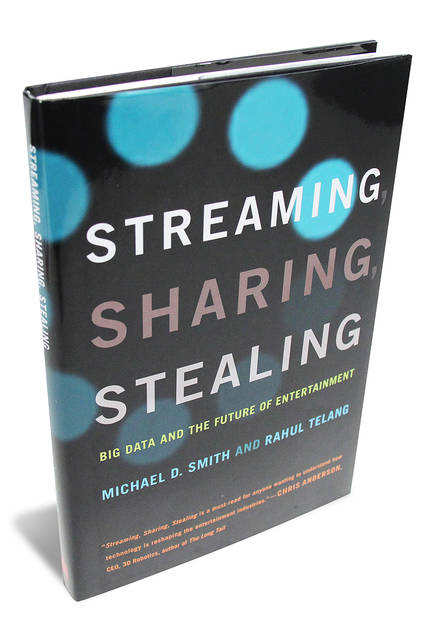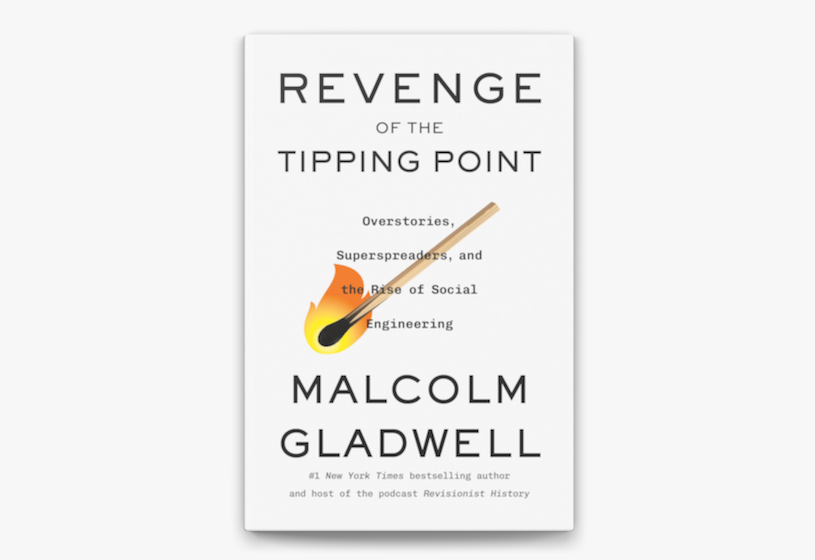DOES THE INTERNET POSE A THREAT to established entertainment companies? Michael D. Smith and Rahul Telang lead a class at Carnegie Mellon University in which a student recently put that question to a visiting executive. He pooh-poohed the idea: “The original players in this industry have been around for the last 100 years, and there’s a reason for that.” As co-heads of CMU’s Initiative for Digital Entertainment Analytics, Messrs. Smith and Telang aim to counter this line of thought, and in Streaming, Sharing, Stealing they do just that, explaining gently yet firmly exactly how the internet threatens established ways and what can and cannot be done about it. Their book should be required for anyone who wishes to believe that nothing much has changed.
At one chain, the top 100 movie titles accounted for 85% of the DVDs rented in-store. But online, the top titles make up only 35% of rentals.
That such thinking still exists, at a time when Apple and Alphabet (that is, Google) are by far the world’s most valuable corporations, is testament to the power of self-delusion. Whether in music or movies or television or books, digital technology has given artists the tools to strike out on their own, enabled audiences to avoid paying for anything they don’t want to pay for and denied media companies the ability to control audience behavior. No longer can executives in New York or Los Angeles force music fans to buy an entire album instead of a single song; or movie buffs to line up at the box office for something they’d rather watch at home free; or television audiences to rush home and endure a barrage of ads in order to see their favorite shows. Remember NBC’s “Must See TV”? Not if you’re under 30.

STREAMING, SHARING, STEALING: Big Data and the Future of Entertainment, by Michael D. Smith and Rahul Telang
MIT Press, 228 pages, $30
The book opens with an emblematic story about House of Cards, the Netflix political drama that upended television, not just because it didn’t come from a conventional network or because the whole first season was released at once but because Netflix dispensed with the pilot process and put up $100 million to produce 26 episodes sight unseen. What looked from the outside like a stunt was a considered investment. Because Netflix has finely grained information about its subscribers—their likes, dislikes, viewing histories—the company can make determinations that television networks, which see audiences through a Nielsen lens that reduces viewers to demographic blobs, cannot.
Data gets you not just granularity but clarity. Do low-cost e-books cannibalize the sales of expensive hardcovers? No, it turns out that people who want one format were never likely to consume the other. What about piracy? Evidence suggests that it does indeed hurt music and video producers, though hardly as much as they claim. Efforts to fight piracy have been shown to cut down on illicit downloads and increase sales; so does a strategy of making more titles available legally. What doesn’t work is conducting business as usual.
Books: Digital Life |
Against the StreamMood Machine, by Liz PellyThe Wall Street Journal | Jan. 26, 2025 |
Learning to Live With AICo-intelligence, by Ethan MollickThe Wall Street Journal | April 3, 2024 |
Swept Away by the StreamBinge Times, by Dade Hayes and Dawn ChmielewskiThe Wall Street Journal | April 22, 2022 |
After the DisruptionSystem Error, by Rob Reich, Mehran Sahami and Jeremy WeinsteinThe Wall Street Journal | Sept. 23, 2021 |
The New Big BrotherThe Age of Surveillance Capitalism, by Shoshana ZuboffThe Wall Street Journal | Jan. 14, 2019 |
The Promise of Virtual RealityDawn of the New Everything, by Jaron Lanier; Experience on Demand, by Jeremy BailensonThe Wall Street Journal | Feb. 6, 2018 |
When Machines Run AmokLife 3.0, by Max TegmarkThe Wall Street Journal | Aug. 29, 2017 |
The World’s Hottest GadgetThe One Device, by Brian MerchantThe Wall Street Journal | June 30, 2017 |
Soft Skills and Hard ProblemsThe Fuzzy and the Techie, by Scott Hartley; Sensemaking, by Christian MadsbjergThe Wall Street Journal | May 27, 2017 |
We’re All Cord Cutters NowStreaming, Sharing, Stealing, by Michael D. Smith and Rahul TelangThe Wall Street Journal | Sept. 7, 2016 |
Augmented Urban RealityThe City of Tomorrow, by Carlo Ratti and Matthew ClaudelThe New Yorker | July 29, 2016 |
Word Travels FastWriting on the Wall, by Tom StandageThe New York Times Book Review | Nov. 3, 2013 |

 September 7, 2016
September 7, 2016





